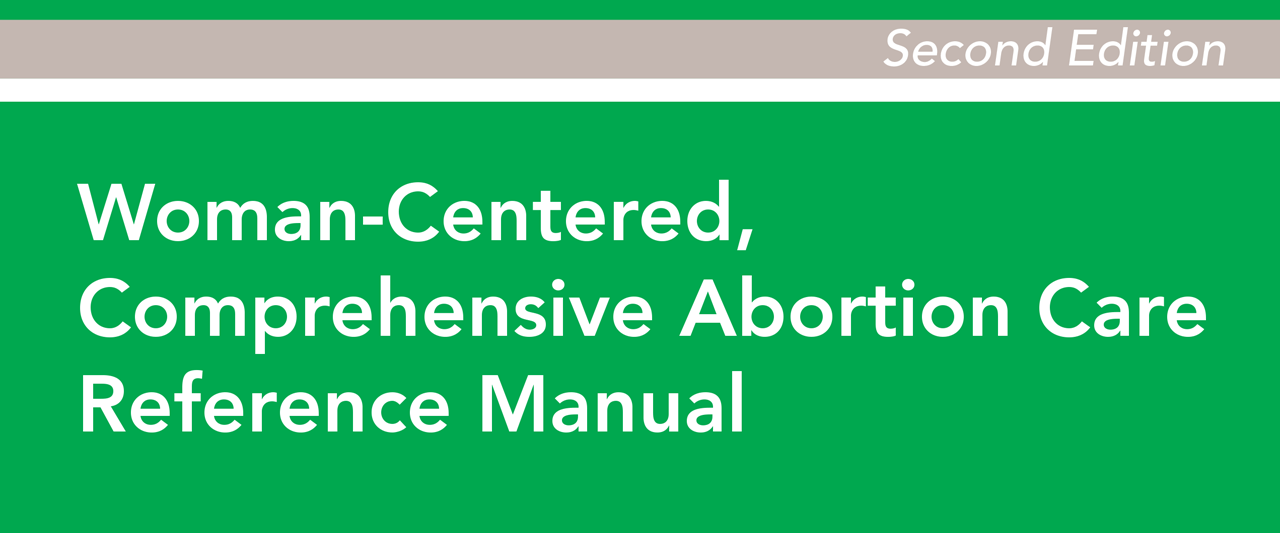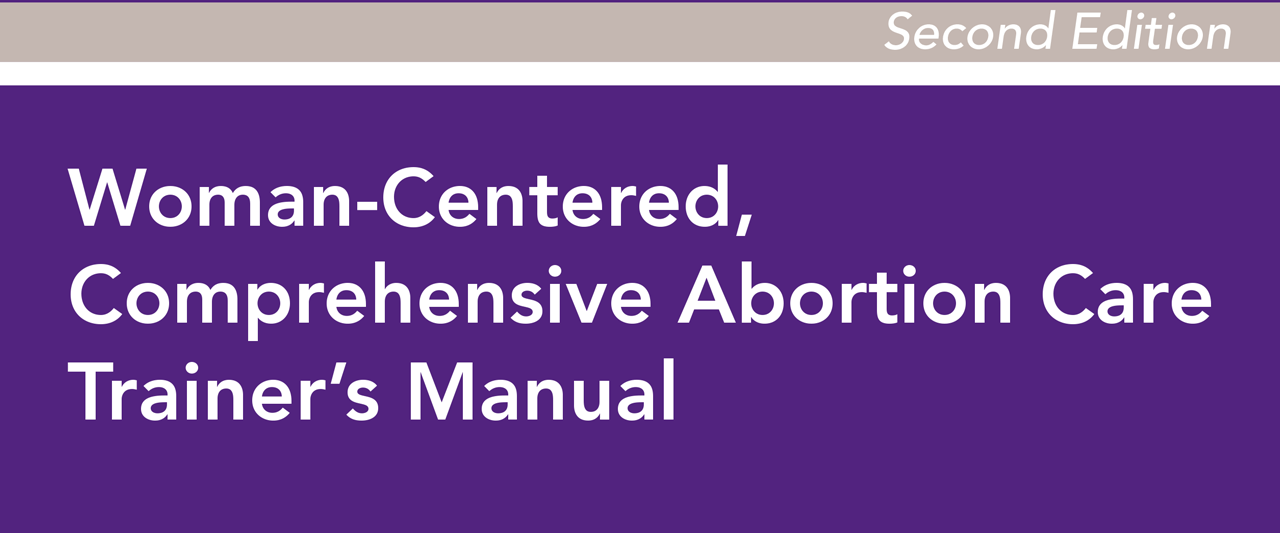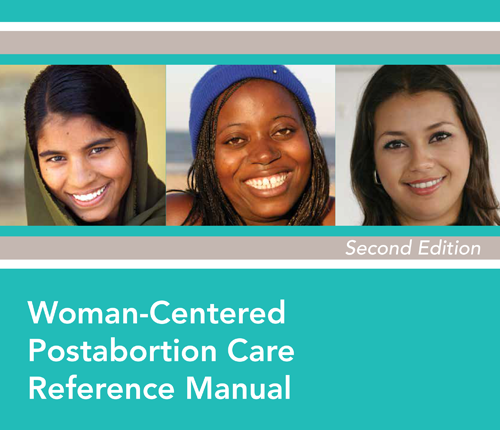The second edition of Ipas’s Woman-Centered, Comprehensive Abortion Care training package is available for download and order. This second edition has been revised in accordance with the WHO’s Safe abortion: Technical and policy guidance for health systems, second edition (2012) and other current clinical and technical guidance and evidence.
“For program managers, trainers or providers working in comprehensive abortion care or postabortion care-only programs anywhere in the world, this can be your go-to training curriculum.” says Katherine L. Turner, Ipas senior health systems advisor and manager of the core clinical curriculum revision process. “Our curricula are state of the art and represent the most current and comprehensive global abortion care training package in our field.”
Highlights of the newly revised edition include: New data on unsafe abortion and the impact of legal restrictions on unsafe abortion; updated evidence-based clinical guidelines and protocols; expanded content on young women’s right to and need for appropriate abortion-related care; and application of a human rights framework to abortion service delivery guidance.
The package includes a trainer’s manual, two reference manuals and related print and multi-media resources, including two PowerPoint presentations with speaker notes that accompany the comprehensive abortion care and postabortion care manuals. The training methodologies are based on adult learning principles and employ a competency-based approach—such as using skills check lists and other tools to assess and ensure that trainees can competently provide services.



A valuable resource around the world
In countries around the world, Ipas’s training package is used in training programs organized by governments and partner health organizations as well as Ipas country programs. “In some cases,” says Ipas’s Turner, “ministries of health have chosen to base their national abortion or PAC training curriculum on these materials or have adopted the manuals outright as their national curriculum.”
In Zambia, says Ipas Zambia Country Director Felicia Sakala, use of the training package has helped to strengthen abortion care at Ipas-supported health facilities operated by the Ministry of Health. Prior to introduction of the Ipas curriculum, she says, the only abortion-related curricula available in Zambia were focused solely on postabortion care. “The Ipas training materials not only have enhanced quality service delivery within the health system,” says Sakala, “but have also enhanced the knowledge and skills of providers and transformed their attitudes and values with respect to abortion care.”
In Nigeria, the previous training curriculum for medical students in obstetrics and gynecology also focused solely on postabortion care—and consisted of just one sentence, according to Sikiratu Kailani, Ipas Nigeria senior health systems advisor. Now, she says, Ipas and ministry partners have developed in-service training for doctors and midwives, as well as pre-service training for medical interns and nurse midwives, all based on Ipas’s curricula. The pre-service training for medical interns, she adds, has been “extremely well-received” by the Medical and Dental Council of Nigeria.
Even in countries where abortion is highly restricted, the training package has proved valuable. In Pakistan, the Pakistan Nursing Council now includes postabortion care in its midwifery pre-service curriculum, using content adapted from the Ipas materials. The Society of Obstetricians and Gynecologists in Pakistan also is adapting material from the postabortion care training manual for use in clinical trainings. Ghulam Shabbir, programs manager for Ipas Pakistan, says many other NGOS working on postabortion care are now using the Ipas curriculum for trainings in their respective regions.
Amanda Huber, reproductive health technical advisor at PSI, a global health organization, and former Ipas consultant, co-edited the comprehensive abortion care training package. She says Ipas’s training curricula and other resources have been key references for PSI’s postabortion care and safe abortion programs, particularly for training providers in high-quality care: “Having these trusted Ipas tools available allows PSI to use the time and money that would have been necessary for curriculum development instead to implement the programs themselves, help more women access the services they need and ultimately reduce the mortality and morbidity caused by unsafe abortion.”
Turner and her team also recently published a second edition of Ipas’s medical abortion training package which includes a study guide, training guide and accompanying materials. For the most up-to date clinical recommendations, please see Ipas’s Clinical Updates in Reproductive Health. Contact Ipas’s Health Systems unit at [email protected] for more information about training curricula and for other training and health systems-related questions.
For more information, contact [email protected]

